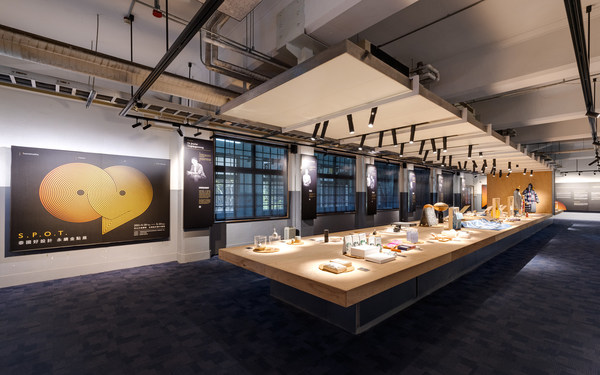Taiwan Design Research Institute (TDRI) collaborates internationally with Thailand for the first time to present 45 award-winning designs of Taiwan’s Golden Pin Design Awards and Thailand’s DEmark Awards under the theme of circular design, showcasing the sustainable power of design in both Taiwan and Thailand.

Subscribe to our Telegram channel to get a daily dose of business and lifestyle news from NHA – News Hub Asia!
In recent years, abnormal environmental changes and climate change have made people aware of the depletion of the Earth’s resources. From governments to private sectors, as well as from commercial activities to daily life, sustainable design has garnered the attention of the entire world. Thailand, which has long promoted circular and eco-friendly design, specializes in utilizing natural materials and resources for creative works, and has always demonstrated excellence in the area of sustainable design, consistently producing fun and novel designs that bring people inspirations in life.
In 2020, Thai design teams won as many as 19 awards at Taiwan’s most representative and renowned Golden Pin Design Awards, displaying Thailand’s impressive design power. For these sustainable designs from Thailand to be known by more people, rather than just being seen at the award ceremony, Taiwan Design Research Institute (TDRI) joined forces with Department of International Trade Promotion (DITP) and Thai Trade Office for the first time, gathering a total of 45 award-winning works of Taiwan’s Golden Pin Design Awards and Thailand’s Demark Awards in 2020 to organize the “S.P.O.T. Sustainable Power of Thai-design” exhibition, which took place from April 20 to May 23 at Taiwan Design Museum in Songshan Cultural & Creative Park.
“S.P.O.T. Sustainable Power of Thai-design” invited Dot Design, a local Taiwanese design team that has extensive experience of working with Thai design industry and focuses on development of products of circular design, to co-curate the exhibition. Using the theme of “spotlight,” which reiterated the focus on the featured designs, the exhibition featured a main visual color scheme that fused the gold of the Golden Pin Design Awards and the red of Thailand’s Design Excellence Award (DEmark); moreover, the logo of the exhibition displayed the “infinity” sign that symbolized the spirit of circular sustainability. The highlights of the exhibition included deodorizer made from disposed palm seeds, felt backpack made of recycled PET bottles, and product packaging made of recycled cotton and scrap paper from factories. In addition to being inspired by the principle of sustainability, these works also showcased the unique features of Thailand’s local and regional products.
In addition to the physical exhibition, a design talk was also organized during the exhibition period. Consisting of three Taiwanese designers, Lance Han, Shikai Tseng, and Hung Hao-chun, and three Thai designers, Siriwan Chiwarak, Jirachi Tankijngawmong, and Twitee Vajrabhaya Teparkum, the panel discussed and explored the topics of “circular design,” “product design,” and spatial deign.”
The designers opened the dialogues with experience in respective disciplines, and shared good sustainable designs from Taiwan and Thailand, allowing fellow panelists with different cultural backgrounds and life experiences to carry on the conversation and spark more inspirations of circular-friendly design.
The exhibition and seminar hoped to inspire citizens to really reflect in the face of the harsh facts of environmental and climate changes; as long as they started making little changes in their own daily lives, every single person could contribute some positive energy to the sustainability of the Earth.
SOURCE Taiwan Design Research Institute

